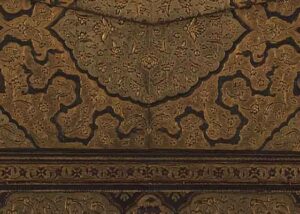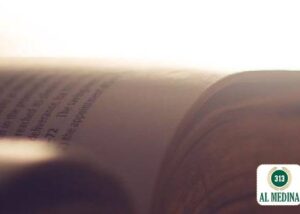Is it true that if you recite Surah Ikhlaas 10 times a day, you will get a house in Jannah?
Quran
Hadith
Islamic Text
The Prophetic (Marfoo) Hadith that states, if you recite Surah Ikhlaas 10 times a day, you will get a house in Jannah, is a weak Hadith. Therefore we cannot say this is authentically narrated. However, it has been narrated in a weak Hadith. Therefore it is acceptable to say it as long as one clarifies that it is based upon weak Hadith.
حَدَّثَنَا حَسَنٌ، حَدَّثَنَا ابْنُ لَهِيعَةَ، قَالَ: وَحَدَّثَنَا يَحْيَى بْنُ غَيْلَانَ، حَدَّثَنَا رِشْدِينُ، حَدَّثَنَا زَبَّانُ بْنُ فَائِدٍ الْحمْرَاوِيُّ، عَنْ سَهْلِ بْنِ مُعَاذِ بْنِ أَنَسٍ الْجُهَنِيِّ، عَنْ أَبِيهِ مُعَاذِ بْنِ أَنَسٍ الْجُهَنِيِّ صَاحِبِ النَّبِيِّ صَلَّى اللهُ عَلَيْهِ وَسَلَّمَ، عَنِ النَّبِيِّ صَلَّى اللهُ عَلَيْهِ وَسَلَّمَ قَالَ: ” مَنْ قَرَأَ: قُلْ هُوَ اللهُ أَحَدٌ حَتَّى يَخْتِمَهَا عَشْرَ مَرَّاتٍ، بَنَى اللهُ لَهُ قَصْرًا فِي الْجَنَّةِ “ فَقَالَ عُمَرُ بْنُ الْخَطَّابِ: إِذًا نَسْتَكْثِرَ يَا رَسُولَ اللهِ؟ فَقَالَ رَسُولُ اللهِ صَلَّى اللهُ عَلَيْهِ وَسَلَّمَ: اللهُ أَكْثَرُ وَأَطْيَبُ
I was informed by Hasan, (who said) we were informed by Ibn Lahi’ah, he said I was informed by Yahya bin Ghaylaan, (he said) we were informed by Rishdeen, (he said) we were informed by Zabaan bin Faid al-Hamraawi, from Shal bin Mu’adh bin Anas al-Juhani, from his father Mu’adh bin Anas al-Juhani (May Allah Most High be pleased with him), the companion of the Prophet ﷺ. He narrated that the Prophet said, ‘Whoever recites, Say He Allah is one, until he completes it, ten times. Allah (Most High) will build for him a palace in paradise.’ Umar ibn al-Khattab (May Allah Most High be pleased with him) said, ‘In that case we will increase (in it), O Messenger of Allah ﷺ. So the Messenger of Allah ﷺ said, ‘Allah Most High is greater and purer.’ (Musnad Ahmad, 15610).
This Hadith has been narrated in many Hadith collections, including Musanaf Abd al-Razaaq, Tabaraani (Kabeer and Awsat) and al-Darimi. However, all of the Marfoo chains (Prophetic Hadith) have weak or problematic narrators.
Therefore, it is not correct to say this is authentic from the Prophet ﷺ. Since the question is asking about the Ghayb (unseen), we require a verse of the Quran or a Prophetic Hadith to substantiate the reward of reciting Surah Ikhlaas 10 times a day. There is no room for Ijtihaad (scholarly opinion) when it comes to issues of the unseen.
وَعَنْ مُعَاذِ بْنِ أَنَسٍ عَنْ رَسُولِ اللَّهِ – صَلَّى اللَّهُ عَلَيْهِ وَسَلَّمَ – قَالَ: «مَنْ قَرَأَ {قُلْ هُوَ اللَّهُ أَحَدٌ} [الإخلاص: 1] عَشْرَ مَرَّاتٍ بَنَى اللَّهُ لَهُ بَيْتًا فِي الْجَنَّةِ “. فَقَالَ عُمَرُ بْنُ الْخَطَّابِ: إِذًا نَسْتَكْثِرُ يَا رَسُولَ اللَّهِ، فَقَالَ رَسُولُ اللَّهِ – صَلَّى اللَّهُ عَلَيْهِ وَسَلَّمَ -: ” اللَّهُ أَكْثَرُ وَأَطْيَبُ
رَوَاهُ الطَّبَرَانِيُّ وَأَحْمَدُ، وَقَالَ: عَنْ سَهْلِ بْنِ مُعَاذِ بْنِ أَنَسٍ الْجُهَنِيِّ صَاحِبِ النَّبِيِّ – صَلَّى اللَّهُ عَلَيْهِ وَسَلَّمَ – عَنْ رَسُولِ اللَّهِ – صَلَّى اللَّهُ عَلَيْهِ وَسَلَّمَ – وَلَمْ يَقُلْ عَنْ أَبِيهِ، وَالظَّاهِرُ أَنَّهَا سَقَطَتْ، وَفِي إِسْنَادِهِمَا رِشْدِينُ بْنُ سَعْدٍ وَزَبَّانُ، وَكِلَاهُمَا ضَعِيفٌ وَفِيهِمَا تَوْثِيقٌ لَيِّنٌ. (مجمع الزوائد ومنبع الفوائد)
from Mu’adh bin Anas (May Allah Most High be pleased with him) that the Prophet said, ‘Whoever recites, Say He Allah is one (Surah al-Ikhlaas, 1) ten times. Allah (Most High) will build for him a house in paradise.’ Umar ibn al-Khattab (May Allah Most High be pleased with him) said, ‘In that case we will increase (in it), O Messenger of Allah ﷺ. So the Messenger of Allah ﷺ said, ‘Allah Most High is greater and purer.’
It was narrated by al-Tabarani and Ahmad. And he said from Shal bin Mu’adh bin Anas al-Juhani the companion of the Prophet ﷺ from the Messenger of Allah ﷺ. He did not say from his father. The apparent is that it was omitted. And in the chain is Rishdeen bin Sa’d and Zabaan. Both of them are weak, although there is weak acceptance of them. (Imam al-Haythami, Majma al-Zawaid).
وَعَنْ أَبِي هُرَيْرَةَ عَنِ النَّبِيِّ – صَلَّى اللَّهُ عَلَيْهِ وَسَلَّمَ – قَالَ: «مَنْ قَرَأَ {قُلْ هُوَ اللَّهُ أَحَدٌ} [الإخلاص: 1] عَشْرَ مَرَّاتٍ بُنِيَ لَهُ قَصْرٌ فِي الْجَنَّةِ، وَمَنْ قَرَأَهَا عِشْرِينَ مَرَّةً بُنِيَ لَهُ قَصْرَانِ، وَمَنْ قَرَأَهَا ثَلَاثِينَ مَرَّةً بُنِيَ لَهُ ثَلَاثٌ». رَوَاهُ الطَّبَرَانِيُّ فِي الْأَوْسَطِ، وَفِيهِ هَانِئُ بْنُ الْمُتَوَكِّلِ وَهُوَ ضَعِيفٌ. (مجمع الزوائد ومنبع الفوائد).
From Abi Hurairah (May Allah Most High be pleased with him) that the Prophet ﷺ said, ‘Whoever recites, Say He Allah is one (Surah al-Ikhlaas, 1) ten times. Allah (Most High) will build for him a palace in paradise. And whoever recites it twenty times will have two palaces built for him. And whoever recites it thirty times will have three built for him.’ It was narrated by al-Tabarani in al-Awsat, it has Hani bin al-Mutawakil in the chain and he is weak. (Imam al-Haythami, Majma al-Zawaid).
As seen above, Imam al-Haythami considered the Hadith to be weak. Imam al-Sayuti alluded to weakness in al-Jami al-Sagheer too. It is always best to give preference to earlier scholars over contemporary scholars. As a general rule, earlier scholars are considered to be more authoritative.
Unfortunately, many Muslims blindly follow contemporary scholars and ignore the classical, agreed upon scholars of this Ummah. Not only is this a mistake in methodology but also leads to sectarianism.
Since every group listens to the scholars aligned to the group, and they do not accept the common ground we have. Therefore, they become more and more sectarian in their religious views (see the video below for more details on this).
Having said that. If a contemporary scholar can clearly demonstrate an error in something said by an earlier more authoritative scholar, then that must be considered. One of the great Hadith scholars of recent times, Shaykh Shuayb Arnawut upheld the opinion of weakness:
إسناده ضعيف لضعف زَبَّان بن فائد، وسهل بن معاذ في رواية زَبَّان عنه، وابن لهيعة ورشدين- وهو ابن سَعْد- ضعيفان، ولكنَّ أحدهما قد تابع الآخر، وبقية رجاله ثقات
The Isnad is weak due to the weakness of Zabaan bin Faid. And the narration of Sahl bin Mu’adh has Zabaan narrating from him. Also, Ibn Lahi’ah and Rishdeen (he is Ibn Sa’d) are both weak. However, one of them has followed the other. The remainder of the narrators are sound. (Shaykh Shuayb Arnawut, footnotes on Musnad Ahmad).
He later goes on to quote Imam al-Haythami considering the Hadith to be weak. Therefore, we have classical Imams considering the Hadith to be weak. And one of the leading scholars of recent times too. Thus, anyone who considers this Hadith to be authentic should demonstrate the authenticity and must respond to the issues raised by these scholars of Hadith. Blindly following a recent scholar without any explanation is not acceptable.
Having said all of this, it is important to note that the Hadith is weak and not fabricated. Therefore, it is permissible to use the Hadith for non-fundamental issues of the Deen. It is permissible to narrate it as long as one clarifies that it is weak.
And Allah Most High Knows Best.
-Answered by Shaykh Noorud-deen Rashid (07.05.2022)
See also:
Referencing Hadith correctly
Using weak Hadith
See also video:






